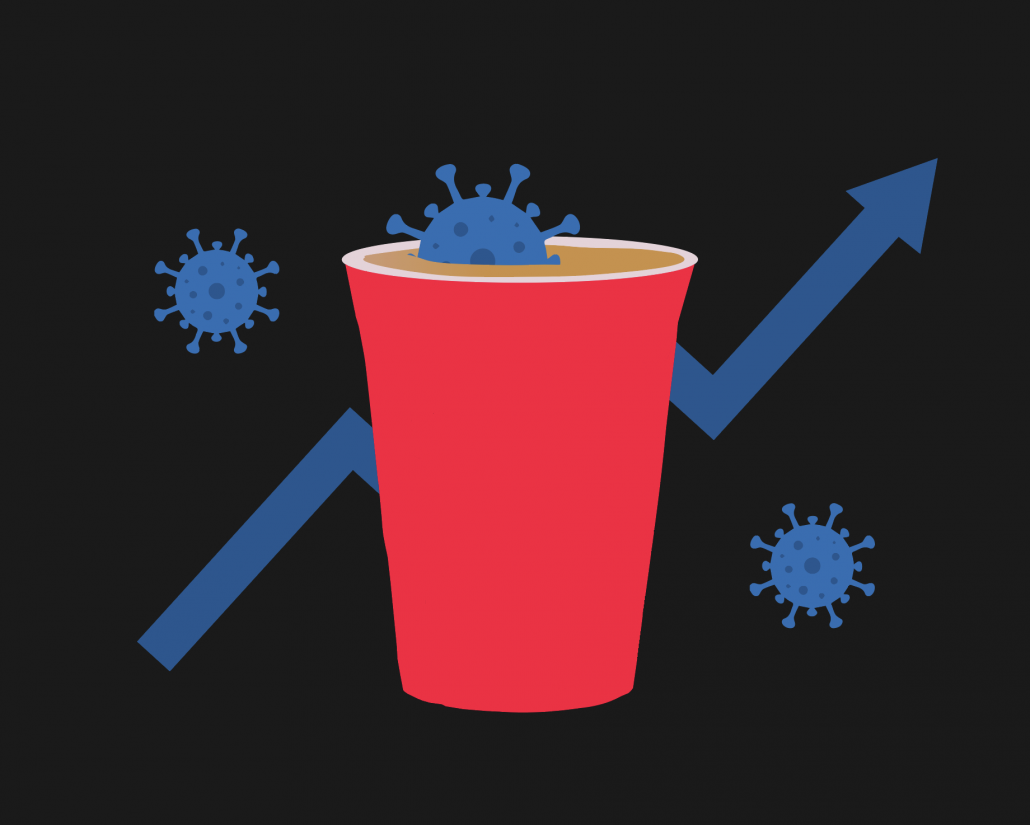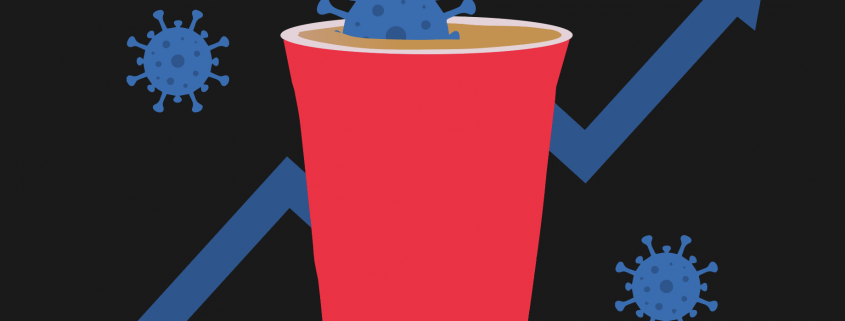Privilege in a pandemic spells trouble for South Central

With various universities such as Notre Dame and Michigan State sending their on-campus students home after the inevitable coronavirus spikes, it was refreshing to see that for once, USC wasn’t involved in such a scandal. However, that pleasant attitude was unfortunately short-lived. With the fall semester underway, USC students have returned and are flocking to off-campus housing.
At face value, this seems promising: Off-campus housing allows students to shelter-in-place, work from home and limit everyday exposure that would have otherwise been difficult to avoid had the students moved into on-campus residence halls. Yet, Los Angeles County’s preventative measure to keep USC’s campus closed in hopes of preventing another spike in cases will likely yield little success. Since Aug. 14, the Department of Public Safety has already reported eight party shutdowns, and it is highly probable that the actual number of parties happening off-campus is much greater than what has been reported.
It is no secret that some USC students are completely disregarding the fact that a global health crisis is ongoing in a densely populated community. Reckless actions, such as partying in a pandemic and gathering without masks or any regard for social distancing guidelines by certain USC students, will almost certainly lead to a spike in coronavirus cases on and around campus. Such a spike will disproportionately impact high-risk students as well as non-USC community members.
It must not go without mention that institutions such as the University are aggravating South Central’s rapid gentrification by increasing rent and cost of living to the point where community members with generational ties to this area are being priced out of their own neighborhoods. A recent Washington Post report noted that Black-owned businesses in South Central will have a significantly harder time recovering from the looming recession. Such a recession will inherently leave these already vulnerable communities at risk to more aggressive gentrification in the future. Thus, it is a significant slap to the face to the rest of South Central when students return to campus and immediately disregard the surrounding community’s health and safety.
These parties and events demonstrate significant ignorance among a certain group of USC students, ignorance that manifests in their prioritization of social capital over the well-being of others. These students are either completely ignorant of the impact of a coronavirus outbreak in this community or simply too selfish to care.
More importantly, such an outbreak in this community would not only disproportionately affect those who are considered high-risk, but also Black and Latinx USC and non-USC community members. A recent Los Angeles Times report stated that, according to data released by the county, Latinx and Black residents have significantly higher coronavirus mortality rates than their white neighbors.
If students continue to gather and ignore social distancing guidelines, there will be a spike in cases and therefore a spike in coronavirus-related deaths in South Central communities. The students attending these reckless events will first spread it to their roommates, especially those residing in densely packed fraternity and sorority housing.
These students, even those who chose not to attend parties, can then bring the virus into the critical businesses, such as Trader Joe’s, Target, Smart & Final and Ralphs. This action necessarily introduces the virus to the local community, whether it be to the employees who work at these businesses or the residents who have to do their essential shopping at shared locations.
The students who are still attending parties and ignoring the coronavirus risks are blatantly reckless and willfully ignorant of the considerable impact of a spike in the local community. These students ought to seriously consider the health and safety of those around them before cracking open an unimpressive and lukewarm White Claw.

